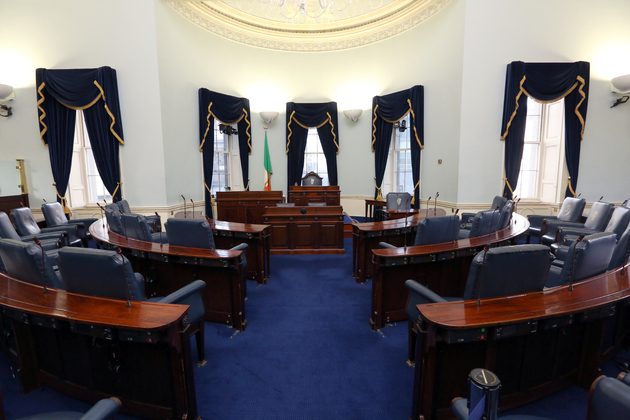Macra na Feirme has proposed a number of key priorities to reduce the impact of Brexit on young farmers and young people living in rural Ireland.
Speaking at the meeting of the Seanad Special Select Committee on the UK Withdrawal from the EU last Thursday, May 18, Macra na Feirme President James Healy outlined the organisation’s priorities.
“Maintaining the UK inside the Customs Union post-Brexit should be a ‘red line‘ issue for the Irish government. This ensures that EU regulations continue without tariffs, duties or regulatory change,” he said
“In the event that this is unattainable, then the Irish government must lobby for a period of transition; where the UK remains within the Customs Union during any protracted exit negotiations beyond 2019.
“Temporary membership to the Customs Union would allow for the appropriate time to be dedicated to developing a full and comprehensive trade agreement,” Healy said.
- Maintaining the strongest possible trading relationships with the UK post-Brexit.
- Securing favourable access to the UK market and sufficient resources to identify new markets for Irish agri-business products.
- An all-island approach to animal health and environment; with access to the European Globalisation Adjustment Fund for up-skilling.
- Increasing spaces in Irish third level colleges to compensate for an expected increase in demand for places due to reduction in access to UK universities.
- Maintaining the CAP budget at European level.
On the issue of third level education, Healy explained how possible travel restrictions and a reduction in EU research opportunities in the UK, could have a positive impact for Irish higher education institutes bidding for international students. This would result in non-EU students from Asia and the Middle East availing of the opportunity to study in an English-speaking nation, such as Ireland.
The Macra na Feirme President expressed how provisions need to be put in place to allow Irish universities, colleges, and institutes of technology, to cope with the potential increase in demand for agriculture courses. However, he also said that any rise in international applicants must not displace opportunities for Irish students.
Commenting on the CAP budget and the impact Brexit could have on it, Healy warned agriculture to remain vibrant. “We need young people to see farming as a viable career,” he said.
If young farmers believe they will be washed away with the first crisis they encounter, they won’t risk entering the industry. It is crucial that the EU continues to support young farmers by maintaining the funding currently directed towards them.
Healy called on members of the Oireachtas to sign off on an increase in Irish government contributions to the EU budget to sustain the CAP budget and safeguard young farmers and rural youth from the effects of Brexit.
